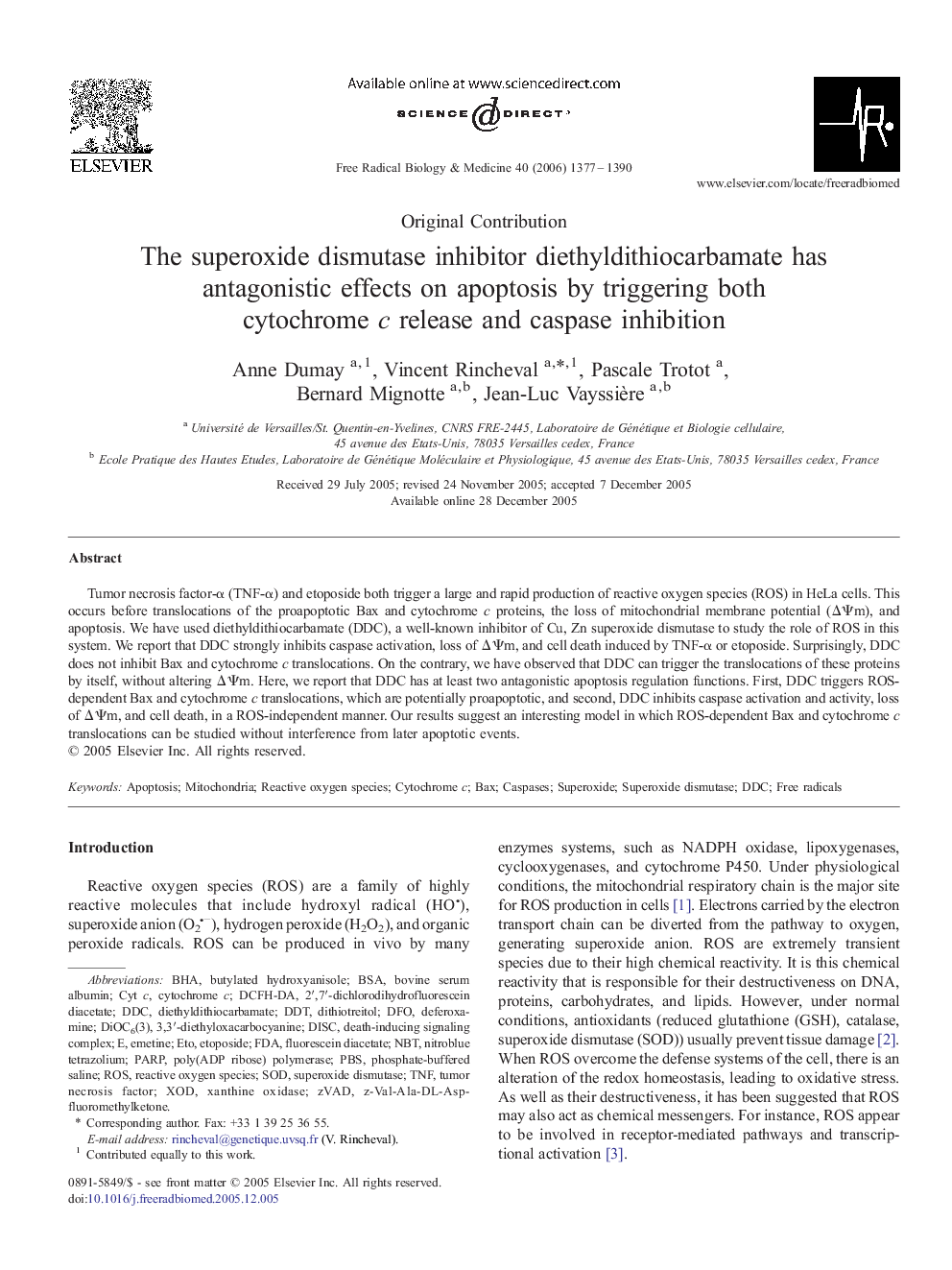| کد مقاله | کد نشریه | سال انتشار | مقاله انگلیسی | نسخه تمام متن |
|---|---|---|---|---|
| 1911585 | 1046823 | 2006 | 14 صفحه PDF | دانلود رایگان |

Tumor necrosis factor-α (TNF-α) and etoposide both trigger a large and rapid production of reactive oxygen species (ROS) in HeLa cells. This occurs before translocations of the proapoptotic Bax and cytochrome c proteins, the loss of mitochondrial membrane potential (ΔΨm), and apoptosis. We have used diethyldithiocarbamate (DDC), a well-known inhibitor of Cu, Zn superoxide dismutase to study the role of ROS in this system. We report that DDC strongly inhibits caspase activation, loss of ΔΨm, and cell death induced by TNF-α or etoposide. Surprisingly, DDC does not inhibit Bax and cytochrome c translocations. On the contrary, we have observed that DDC can trigger the translocations of these proteins by itself, without altering ΔΨm. Here, we report that DDC has at least two antagonistic apoptosis regulation functions. First, DDC triggers ROS-dependent Bax and cytochrome c translocations, which are potentially proapoptotic, and second, DDC inhibits caspase activation and activity, loss of ΔΨm, and cell death, in a ROS-independent manner. Our results suggest an interesting model in which ROS-dependent Bax and cytochrome c translocations can be studied without interference from later apoptotic events.
Journal: Free Radical Biology and Medicine - Volume 40, Issue 8, 15 April 2006, Pages 1377–1390